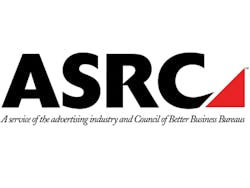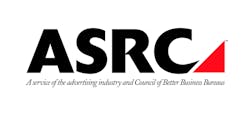National Advertising Division recommends Splintek discontinue “No. 1 brand prescribed” claim, bitepad strength claim for dental guards
The NAD is an investigative unit of the advertising industry’s system of self-regulation. It is administered by the Council of Better Business Bureaus.
Advertising claims made by Splintek in print and digital advertising and on product packaging for its Dura-Comfort and Slim-Comfort dental guards were challenged by Prestige Brands Inc., maker of The Doctor’s NightGuard products.
The NAD examined substantiation for claims that included:
• SleepRight dental guards are the “No. 1 brand prescribed by dental professionals.”
• SleepRight’s Dura-Comfort dental guard’s bitepad material is “Four [times] stronger than any other [dental] guard.”
• SleepRight’s Slim-Comfort dental guard’s bitepad material is “Two [times] stronger than any other [dental] guard.”
A dental guard is an over-the-counter device made of molded plastic used to prevent users from grinding their teeth while they sleep.
In this case, the NADconsidered — but was not persuaded by — the advertiser’s argument that SleepRight is “No. 1 brand prescribed by dental professionals” because it is the only brand of dental guard available by prescription. The NAD noted in its decision that a claim that a product is the “No. 1 brand prescribed by [a professional]” reasonably conveys the implied message that professionals have a choice in prescribing brands and that professionals choose one brand over another.
ADDITIONAL READING | Are you screening for sleep apnea when treatment planning for occlusal guards?
ADDITIONAL READING | Snoring or dying? There's a difference
The NAD also examined the results of the advertiser’s survey of 1,000 “dental professionals” and determined it was insufficient to support the claim. The NAD noted that the 2009 survey, conducted by Splintek employees, was not blinded and did not screen to ensure that respondents were dental professionals. Of the 111 individuals who responded, most reported that they did not prescribe dental guards. Of those who did prescribe the products, only 14 said they prescribed SleepRight dental guards.
During the course of the proceeding, Splintek volunteered to modify its bitepad-strength claims. The NAD determined, however, that the evidence in the record was insufficient to support the claims as they were initially made and/or as they were modified. Given the lack of any consumer-relevant comparative testing regarding the strength of these products when worn by consumers, the NAD recommended that advertiser discontinue its “four [times] stronger” and “two [times] stronger” claims.
Splintek, in its advertiser’s statement, said the company is “disappointed that the NAD found that the evidence presented by Splintek did not properly substantiate its claims and believes that the challenged claims, as amended, are properly substantiated given the unique facts of this case. However, out of respect for the NAD and the self-regulatory process, Splintek accepts the NAD’s decision and agrees to consider the NAD’s recommendations in its future advertising.”


